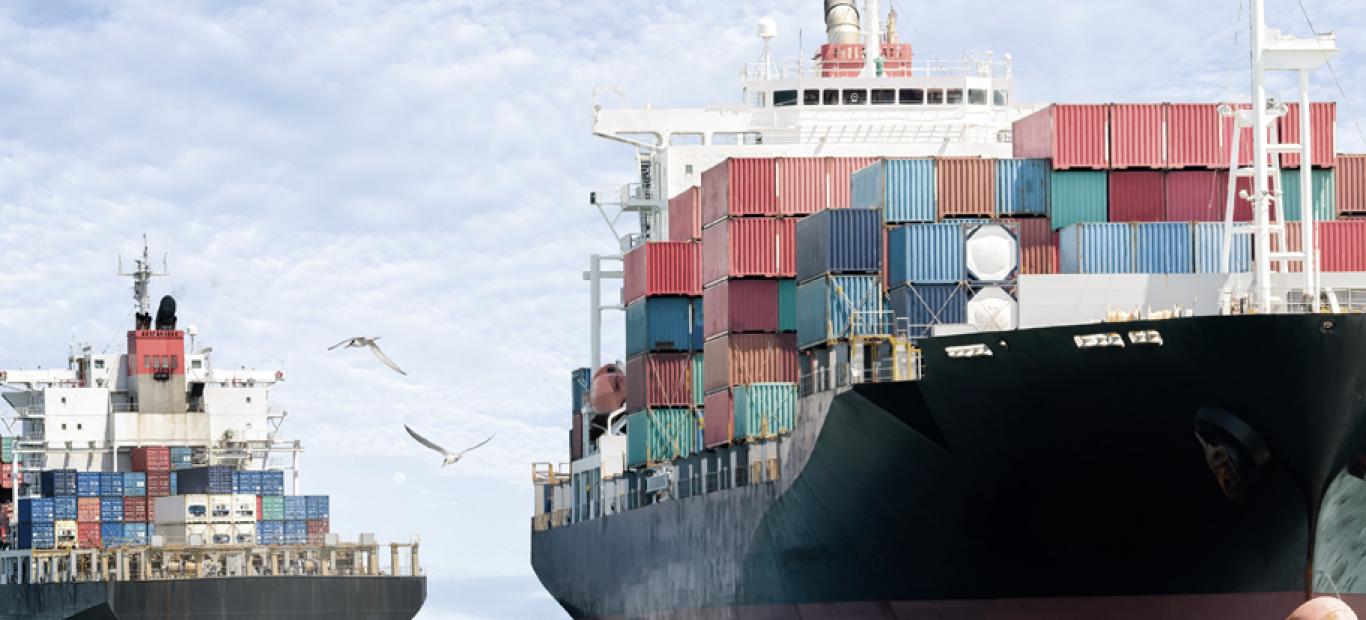Part 2 - Protection for Shipping Companies from the Impact of COVID-19
Hello, Reas friends!
In the previous article, we explained how important it is to buy a P&I policy for shipping companies, especially in this Covid-19 outbreak. This policy generally provides protection for ship owners, ship operators and charterers for any losses arising from third party claims due to ship operations. This policy also covers other unexpected additional costs in accordance with the provisions of the policy. In this article, we will particularly discuss how the P&I policy works when there is a problem with the spread of the Covid-19 outbreak.
In a broad outline, P&I protection can be provided by P&I clubs and insurance companies. Club P&I is an association or organization that provides risk pooling and information, exclusively for its members. The members of this P&I club are usually ship owners, ship operators, and charterers. The P&I policy of this club is usually Taylor Made. In addition to the Taylor Made policies, MAR policy has also provided wording on P&I guarantees to the Institute of Protection and Indemnity Clauses Hulls - Time Clause 344.
In this article, we will review the wording guarantee of cl. 344.
Let's first start the following clause 1.1
1.1 The Underwriters agree to indemnify the Assured for any sum or sums paid by the Assured to any other person or persons by reason of the Assured becoming legally liable, as owner of the vessel, for any claims, demand, damages and/or expanses, where such liability is in consequence of any of the following matters or things and arises from an accident or occurrence during the period of this insurance
Clause 1.1 explains that the underwriter agrees to compensate for
1. An amount of money paid by the insured to another person/ party because the insured becomes legally liable, as the owner of the ship
2. Claims, demands, damages, and/ or expenses for which the insured is liable, is a consequence of the things below and arises from events or accidents that occur during the insurance period.
What are the consequences of matters can the P&I Cl. 344 policy cover? To know the answer, we have to look at the clause below:
1.1.1 loss of or damage to any fixed or movable object or property or other thing or interest whatsoever other than the vessel, arising from any cause whatsoever in so far as such loss or damage is not covered by Clause 8 of the Institute Time Clauses Hulls 1/10/83 with 4/4ths substituted for 3/4ths in line nos. 80, 81, 98 and 99
The first point is the damage caused to a stationary object, a moving object, property, or any other object other than a ship that is not covered by the Institute Time Clauses Hull policy. This also includes ¼ of the collision liability, if the ITC Hull policy only covers ¾ of collision liability.
1.1.2 Any attempted or actual arising, removal or destruction of any fixed or movable object or property or other thing, including the wreck of the Vessel, or any neglect or failure to raise, remove or destroy the same
The second point is related about wreck removal. Costs incurred for moving or destroying stationary objects, moving objects, property, including shipwrecks, are guaranteed by this policy.
1.1.3 liability assumed by the Assured under contracts of customary towage for the purpose of entering or leaving port or manoeuvring within the port during the ordinary course of trading
The next point is related to contractual liability during customary towage. If something untoward happens while doing customary towage with the aim of entering or exiting the port, or manoeuvring the port area, these damages will be guaranteed. However, with the condition that this customary towage activity is carried out in the trading area according to the initial plan.
1.1.4 loss of life, personal injury, illness or payments made for life salvage
In this point, it explains that this policy guarantees loss of life, injury, illness and costs incurred to save lives.
Then we enter clause 1.2, where this policy repeats a little of the sentences that have been mentioned in clause 1.1:
1.2 The Underwriters agree to indemnify the Assured for any of the following arising from an accident or occurrence during the period of this insurance
"Why are clauses 1.1 and 1.2 different? Why is there a clause 1.1 and 1.2 in this policy? Why is it not combined in one clause? " This is of course a question for those of us who have read the clause 344. We see that there is a difference in meaning and definition between clause 1.1 and clause 1.2. In clause 1.1, this paragraph focuses more on losses caused by claims by third parties to ship owners. Meanwhile, clause 1.2 focuses more on costs other than the demands of the 3rd party.
What are the costs covered by this policy?
1.2.1 the additional cost of the fuel, insurance, wages, stores, provision and port charges reasonably incurred solely for the purpose of landing from the Vessel sick or injured persons or stowaways, refugees, or persons saved at sea
The first is the costs incurred by the insured for additional fuel, insurance, salaries, daily items on board (food, drinks, medicines, cleaning equipment, etc.), and docking costs that appear when the ship suddenly arrives and must immediately anchor because there are people who are sick, injured, refugee (refugees) on the ship, or there are people being rescued at sea
1.2.2 Additional expenses brought about by the outbreak of infection disease on board the Vessel or ashore
The second is additional costs caused by an outbreak of a disease on board or on land.
1.2.3 fines imposed on the Vessel, on the Assured, or on any Master Officer crew member or agent of the Vessel who is reimbursed by the Assured, for any act or neglect or breach of any statute or regulation relating to the operation of the Vessel, provided that the Underwriters shall not be liable to indemnify the Assured for any fines which result from any act neglect failure or default of the Assured their agents or servants other than Master Officer or crew member
The third fee is the fine imposed on the ship, the insured, master officer, crew member or agent representing the insured for committing, neglecting, or violating regulations relating to the operation of the ship. However, it should be noted that although the fines given are on behalf of the ship, the insured person, master officer, crew member or agent, not all of these fines will be guaranteed. It depends on who actually is the party that made the mistake or broke the rules. If the master officer or crew member violated or ignored the rules, this fine would be guaranteed. But if it is the agent or ship owner who made the mistake, it is not guaranteed. It's a little confusing, but let us try to provide an example to make it clearer.
Example: Fines are given on behalf of the Master Officer. However, after being traced, it turned out that the ship owner was guilty because he did not fulfil an operational obligation. In this case, the fine cannot be reimbursed by insurance because the one who actually made violations is the ship owner.
Conversely, if the fine is given on behalf of the ship owner. After being traced, the error was caused by the Master Officer. In this case the fine will be paid by the insurance company.
1.2.4 the expenses of the removal of the wreck of the Vessel from any place owned, leased or occupied by the Assured
the 4th cost guaranteed is the cost to remove the wreck from the place owned by the insured.
1.2.5 Legal cost incurred by the Assured, or which the Assured may be compelled to pay, in avoiding, minimizing or contesting liability with the prior written consent of the Underwriters.
After we look at the guarantee provided by Cl. 344, we may be wondering, what about the cargo? Is the damage to the cargo covered in this policy?
It turns out that the answer is it is not covered because it is listed in exclusion clause 1.3.4:
1.3 Notwithstanding the provisions of Clauses 1.1 and 1.2 this Clause 1 does not cover any liability cost or expense arising in respect of
1.3.1 ….
1.3.2 ….
1.3.3 ….
1.3.4 cargo or other property carried, to be carried or which has been carried on board the Vessel but this Clause 1.3.4 shall not exclude any claim in respect of the extra cost of removing cargo from the wreck of the Vessel
In this clause, it is explained that the guarantees in clause 1.1 and 1.2 do not cover liability or costs caused by cargo and other property that are carried, which are to be carried, and which have been carried on board.
After we review the guarantees at the Institute Protection and Indemnity Clauses Hulls - Time Clause 344, we can see how this policy works or and when to claims when the Covid-19 outbreak occurs:
- 1.2.1 the additional cost of the fuel, insurance, wages, stores, provision and port charges reasonably incurred solely for the purpose of landing from the Vessel sick or injured persons or stowaways, refugees, or persons saved at sea
Let’s take an example of the Diamond Princess ship where the passengers on board are exposed to covid-19 (sick persons category). Here we know that the Diamond Princess ship is not allowed to dock according to its schedule, therefore there will definitely be more fuel consumption than it should be. Apart from fuel, the wages of the crew will of course increase because of the additional work days
1.2.2 Additional expenses brought about by the outbreak of infection disease on board the Vessel or ashore
By using the same example as the one we already know, Covid-19 can be categorized as an outbreak of infection disease. Therefore, all costs incurred related to Covid-19 will be guaranteed by this policy.
Therefore, as a ship owner, of course, you don't need to worry about the financial losses that occur if you have purchased this P&I policy. But what about buying a P&I policy from a club? What is the example like? We will discuss this in the next article. Greetings!
Reference :
https://globalnews.ca/news/6761227/cargo-ship-denied-entry-to-port-of-halifax/
Institute Protection and Indemnity Clauses Hulls – Time, MAR Policy CL. 344
Protection & Indemnity, Marine Liability, Protection and Legal Expenses Terms & Conditions, British Marine.
Author





 10048
10048



 06 Aug 2021
06 Aug 2021 11050 kali
11050 kali





